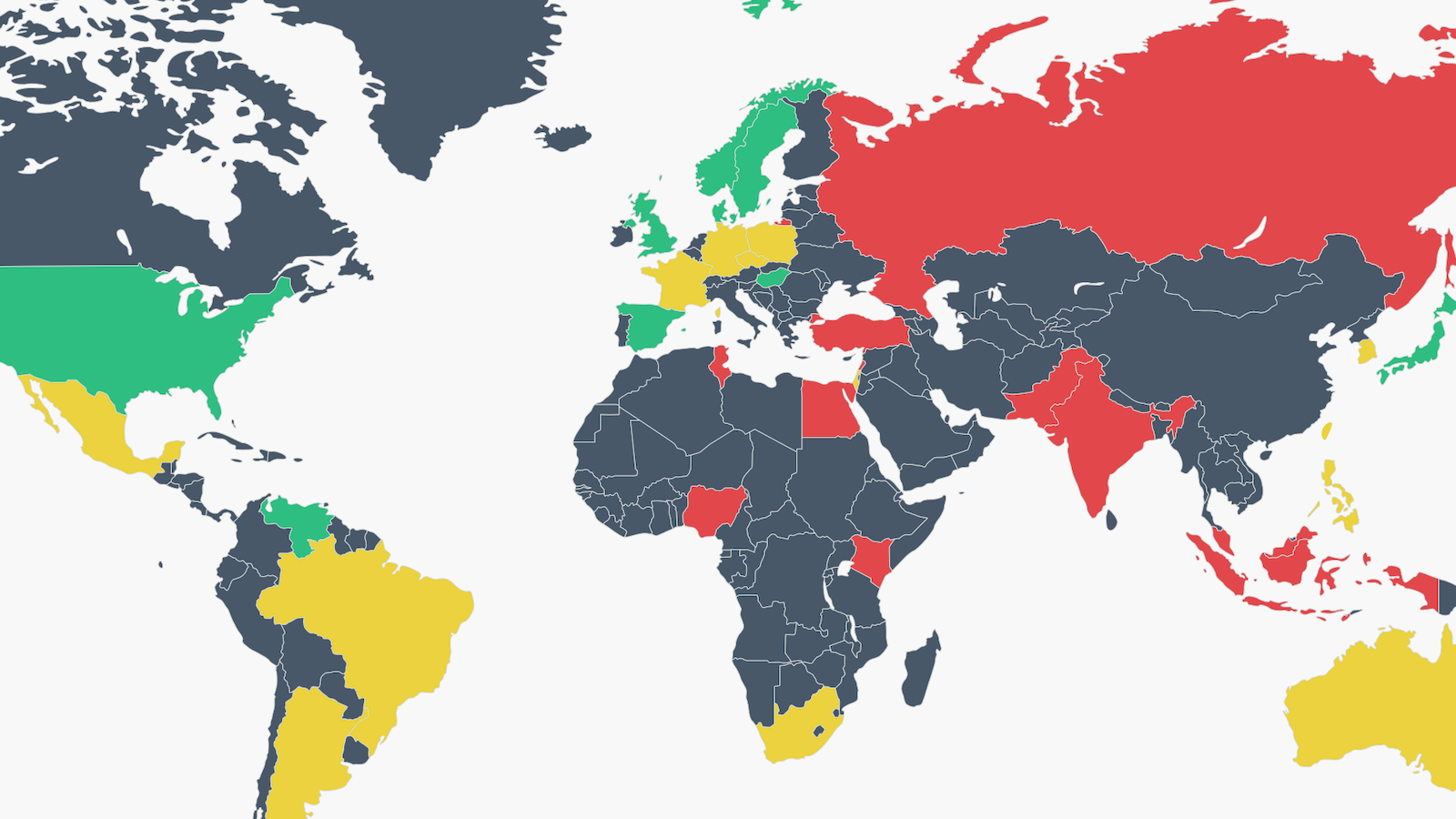Japan upholds ‘forced sterilization’ law for transgender people seeking gender reclassification

(Photo credit DIPTENDU DUTTA/AFP/Getty Images)
- So-called mandatory sterilization laws require transgender people to get sterilized before being able to legally change their genders.
- Activists and other opponents of such legislation call these laws invasive and against the individual’s right to self-determination.
- Japan isn’t the only country to still have mandatory sterilization laws, and it wasn’t until 2017 that Europe decided to end mandatory sterilization–though not all countries have accepted the change.
Japan’s Supreme Court unanimously voted on Friday to uphold a law that effectively requires any transgender person who wants to switch gender to undergo sterilization, a decision that was immediately denounced by LGBT activists.
Japan’s Law 111 states states that any person seeking to legally change to a different gender must have their original reproductive organs removed in order to appear “to have parts that resemble the genital organs” of that gender. The appeal was brought by Takakito Usui, a Japanese transgender man who said the law violates his right to self-determination and is unconstitutional.
“It is unthinkable in this day and time that the law requires a sex-change operation to change gender,” Usui’s lawyer Tomoyasu Oyama told CNN. “When the law was established 15 years ago, LGBT people had to make a bitter decision and swallow the conditions to pave a narrow way for official change of gender. With this decision, I hope lawmakers will change the law to support the wishes of the LGBT community.”
Despite the rejection, two of the judges on the four-judge panel that issued the ruling recommended regular reviews of the law and appropriate measures “from the viewpoint of respect for personality and individuality,” according to Japanese media reports. The court had said the laws were designed to prevent “confusion,” avoid “abrupt changes” in society, and protect parent-child relations.
Since the law passed in 2004, more than 7,800 Japanese people have undergone so-called forced sterilizations in order to receive legal recognition of their desired genders.
’Forced’ sterilizations
Japan is far from the only country that still requires transgender people to be sterilized before switching genders under the law. China still requires sexual reassignment surgery as a prerequisite for applying for legal gender identification changes, and it wasn’t until 2017 that the European Court of Human Rights decided that mandatory sterilization laws, which at the time were still on the books in 22 European states, violated the European Convention on Human Rights, a ruling which Finland rejected.
These laws, which are arguably rooted in the eugenics movements of the 20th century, seem to be based on a longstanding medical diagnosis that classifies being transgender – or gender incongruence – as a mental illness. Last year, the World Health Organization decided to stop labeling it as such, choosing to reclassify it as a sexual health condition.
“It was taken out from the mental health disorders because we had a better understanding that this wasn’t actually a mental health condition and leaving it there was causing stigma,” said Dr. Lale Say, coordinator of WHO’s Adolescents and at-Risk Populations team. “So in order to reduce the stigma while also ensuring access to necessary health interventions, this was placed in a different chapter.”
So now, the question is: If the international medical consensus agrees that transgender people aren’t mentally ill – meaning that old gender reclassification laws are based on an outdated definition – will nations change their laws?





